-
The deepest cuts to Britain’s public spending since World War II were announced in October. At the same time, it was revealed that some of the nation’s biggest corporations and richest people were using legal loopholes to avoid paying tax. The treasurer in the Conservative Party-Liberal Democrat coalition government, Conservative MP George Osborne, announced that £81 billion would be slashed from public spending including £7 billion in welfare cuts.
-
According to multiple reports tens of thousands of workers across Egypt have gone on strike and joined the anti-Mubarak protests.
-
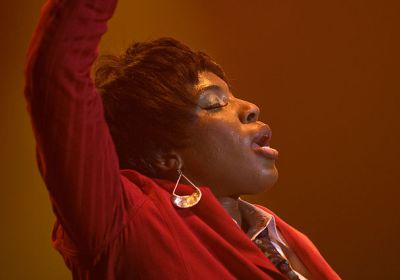
This went up on IS singer Macy Gray's Facebook page on January 17: "I'm booked for 2 shows in Tel Aviv. I'm getting a lot of letters from activists urging/begging me to boycott by NOT performing in protest of Apartheid against the Palestinians. What the Israeli government is doing to the Palestinians is disgusting, but I wanna go. I gotta lotta fans there I don't want to cancel on and I don't know how my NOT going changes anything. What do you think? Stay or go?"
-
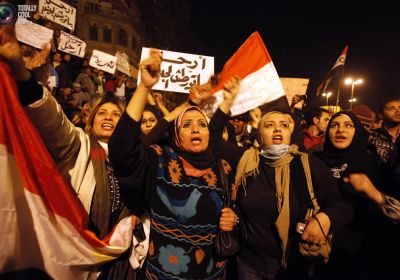
“We will not be silenced,” shouts an Egyptian protester in one of the many videos posted on YouTube of the uprising against the Hosni Mubarak dictatorship that began on January 25.
-
 In 2009, more than a 100 activists were arrested in a swoop on a community centre in Nottingham in an operation involving hundreds of police. They were alleged to be planning to close down Ratcliffe-on-Soar power station. It was revealed that one of the organisers of the alleged protest, Mark Stone, was an undercover cop who had tipped off the police. Stone was unveiled after his partner found a passport in his real name of Mark Kennedy. He was confronted by Camp for Climate Action activists and confessed all.
In 2009, more than a 100 activists were arrested in a swoop on a community centre in Nottingham in an operation involving hundreds of police. They were alleged to be planning to close down Ratcliffe-on-Soar power station. It was revealed that one of the organisers of the alleged protest, Mark Stone, was an undercover cop who had tipped off the police. Stone was unveiled after his partner found a passport in his real name of Mark Kennedy. He was confronted by Camp for Climate Action activists and confessed all. -
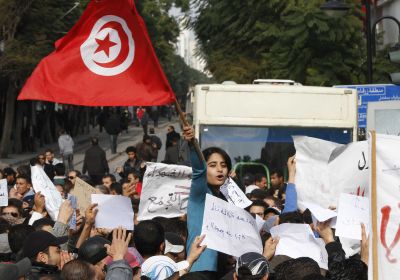 Ongoing democracy protests in Tunisia, which continued beyond the January 14 overthrow of President Zine al-Abidine Ben Ali to demand a government free from the former ruling party, were hit by a wave of vicious repression in late January. The protesters from the “caravan of liberation”, which had camped for five days outside Prime Minister Mohamed Ghannouchi’s offices in Tunis, were driven off the streets on January 29.
Ongoing democracy protests in Tunisia, which continued beyond the January 14 overthrow of President Zine al-Abidine Ben Ali to demand a government free from the former ruling party, were hit by a wave of vicious repression in late January. The protesters from the “caravan of liberation”, which had camped for five days outside Prime Minister Mohamed Ghannouchi’s offices in Tunis, were driven off the streets on January 29. -
Venezuela’s petroleum corporation in the US, Citgo, announced on January 27 the start of its sixth year providing subsidised heating oil to low-income people in the US. An estimated 132,000 households across the US will benefit from the program this year, amounting to US$60 million of savings. The program is carried out with US non-profit group Citizens Energy Corporation. Joseph P. Kennedy II said: “Every year, we hear from families who struggle each and every day to put food on the table and heat their homes.
-
Thousands of West Papuans marched in the capital Jayapura on January 26, AFP said that day. Marchers rejected the area’s “special autonomy” status within Indonesia and demanded a referendum on independence from Indonesia. Protesters chanted: “Indonesia the coloniser, Indonesia the oppressor, Indonesia the robber.” The action included students from Cenderawasih University, the Indonesian Christian Students Movement and church members, Tempo Interactive said on January 26.
-
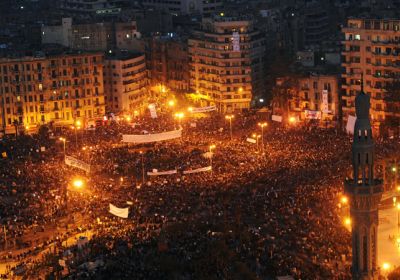
Regardless of the outcomes of the Egyptian and Tunisian revolutions, and regardless of whether protests for democracy in Yemen, Jordan and other Arab countries grow into similar uprisings, the Middle East has fundamentally changed.
-
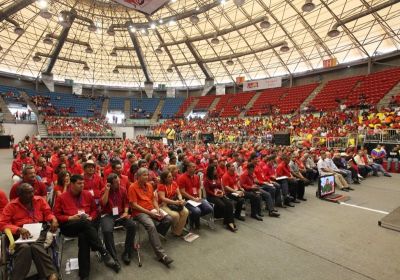 More than 1000 members of the United Socialist Party of Venezuela (PSUV) met with President Hugo Chavez on January 19 and decided on five key strategic lines for the next two years. The discussion included recognition of important weaknesses in the party. Chavez, who is also president of the governing PSUV, presented the document, Strategic Lines of Political Action of the PSUV for 2011-2012, to the “National Assembly of Socialists” in Vargas state. About 1440 party leaders were present.
More than 1000 members of the United Socialist Party of Venezuela (PSUV) met with President Hugo Chavez on January 19 and decided on five key strategic lines for the next two years. The discussion included recognition of important weaknesses in the party. Chavez, who is also president of the governing PSUV, presented the document, Strategic Lines of Political Action of the PSUV for 2011-2012, to the “National Assembly of Socialists” in Vargas state. About 1440 party leaders were present. -
Irish Taosiech (prime minister) Brian Cowen resigned as leader of the government Fianna Fail party on January 22. The move came in the midst of a political crisis caused by the Cowen government accepting an 85 billion euro bailout package from the European Union and International Monetary Fund. The package will be accompanied by savage spending cuts that will drastically deepen the austerity imposed on the Irish people in response to the financial crisis that hit the southern Irish state in 2008.
-
David Kato Kisule, described by The New York Times on January 28 as the father of Uganda’s lesbian, gay, bi-sexual and transgender rights movement, was murdered in his home on January 26. Kato was advocacy officer for Sexual Minorities Uganda. The killing came as increasingly violent homophobic tensions continued to escalate in the east African nation. Kato, aged 46, was bludgeoned to death with two blows to the head from a hammer in his Kampala home. The attack was carried out by one or more male attackers.
World
World